Key points
Contents
- 1 Key points
- 2 Dealing with Grease Build-up in Septic Tanks
- 3 Purpose and Scope of the Discussion
- 4 Basic Septic Tank Information
- 5 Biological and Chemical Processes
- 6 Dealing with Grease in Septic Tanks
- 7 Getting to Know How Grease Builds Up in Septic Tanks
- 8 How Grease is Like Other Organic Trash
- 9 Problems with Too Much Grease
- 10 Understanding Grease-Fighting Chemicals in Septic Systems
- 11 Comparing Treatment Options
- 12 Description of Grease Traps and Interceptors
- 13 Pump and Clean Your Septic Tank
- 14 Gadgets and Tricks for Hand-Cleaning Grease
- 15 Safety and Environmental Considerations
- 16 Simple Ways to Break Down Grease in Septic Tanks
- 17 Troubleshooting and Repair
- 18 How to Break Down Grease in Septic Tanks
- 19 Frequently Asked Questions (FAQ)
• Add Good Microbes: Put in specially made bacteria or enzyme mixes that help get rid of fats, oils, and grease (FOG) in your septic setup. It’s a safe way to keep things running smooth without messing up the tank’s natural microbes.
• Hot Water Trick: Now and then, run hot water down your drains. It can melt away some grease that’s not too thick. But, watch out! Too hot can wreak havoc on your system.
• Stay on Top of Maintenance: Don’t wait for trouble; stay ahead with routine check-ups and clean-outs from the pros. They’ll keep the nasty grease out and stop your system from getting gummed up.
Dealing with Grease Build-up in Septic Tanks
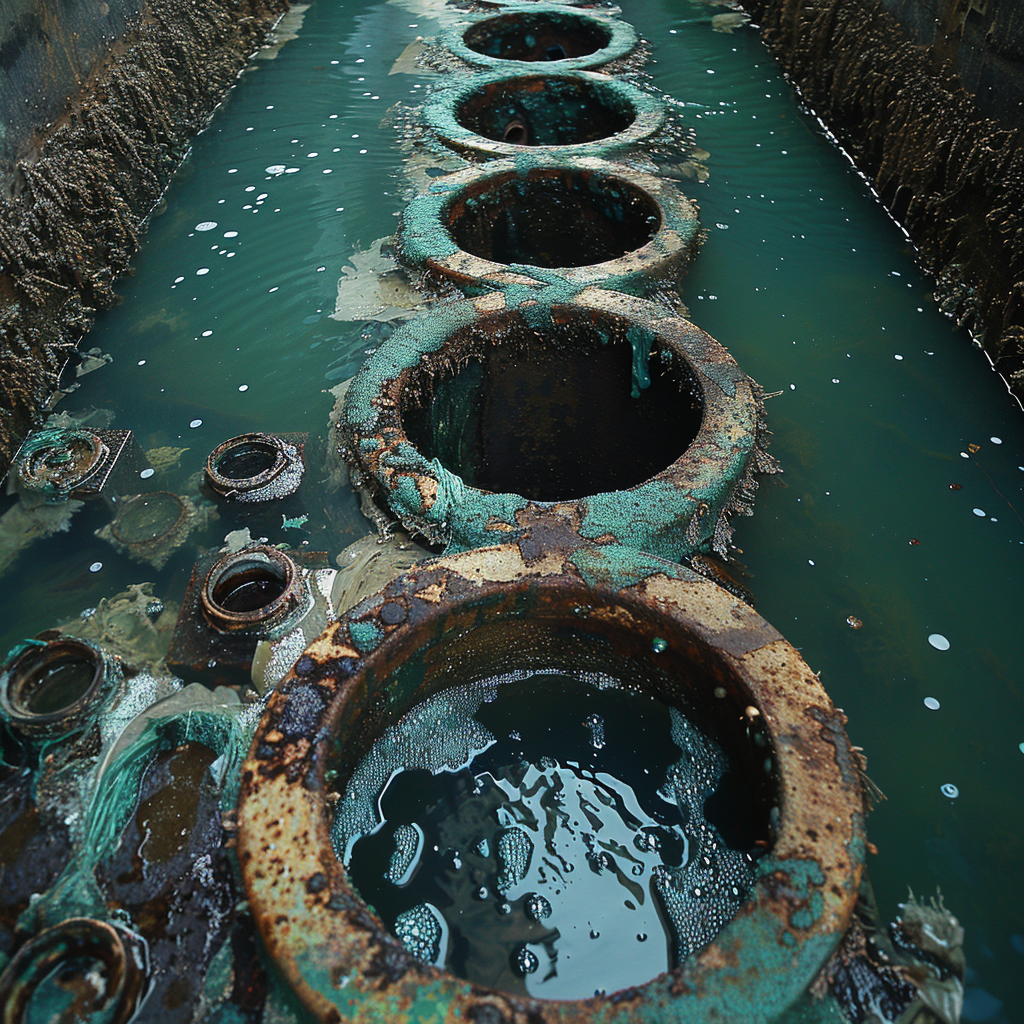
When you cook or clean, grease often ends up going down the drain and into your septic tank. But here’s the problem: septic tanks struggle to break it down. As grease piles up, it can clog your system, messing with your septic tank’s performance. It’s pretty important to manage and get rid of this grease to keep your septic tank working right.
Purpose and Scope of the Discussion
We’re here to talk about how to handle grease problems in septic tanks. We’ll look at ways to keep too much grease from getting into the system, and also how to break down the grease that’s already there. Our chat will cover daily routines of people who have septic tanks and different kinds of products they can use to solve these issues safely.
Definition and Properties of Grease
Grease is mostly made up of fats, oils, and waxes. It’s thick and sticky, and doesn’t mix well with water. Because grease is lighter than water, it tends to clump together and float. Knowing this helps us understand how grease acts in septic systems.
Sources of Grease in Domestic Wastewater
A lot of the grease in household wastewater comes from everyday things we do. This includes when we cook with oils, throw away food scraps, or use soaps and detergents. Even the creams we use and certain shampoos add a bit of grease that builds up over time in our septic tanks.
The Impact of Grease on Septic Tank Functionality
As grease piles up in a septic tank, it forms a scum layer on top of the water. This scum messes with the good work bacteria are doing to break down waste. It can get worse, leading to clogged pipes, which disturb the flow inside the tank, and may result in nasty backups or even break the system.
Similarities between Grease-Related Issues in Septic Tanks and Municipal Sewage Systems
Septic tanks and city sewer systems both struggle with grease. In both situations, grease can block pipes and make it harder to treat wastewater. City systems have an even bigger problem with huge grease balls called “fatbergs” that can damage lots of infrastructure.
Basic Septic Tank Information
The septic tank is crucial for processing wastewater in many houses, especially outside city limits. It’s important to know how it’s put together and works. Commonly, septic tanks are split into sections: the first part collects solid waste that sinks and becomes sludge; a second part allows more settling; and sometimes there’s a third area for liquids to separate from floating substances.
The Build and Parts of a Septic System
A usual septic setup includes a tank plus an area where the water goes after treatment. Tanks come in concrete, fiberglass, or plastic and have two sections. Waste water enters the first section through pipes, where the heavy stuff falls to the bottom. There’s a wall with a hole near its top so the cleaner water can move to the next section and settle more before heading out to the drainage zone.
Biological and Chemical Processes
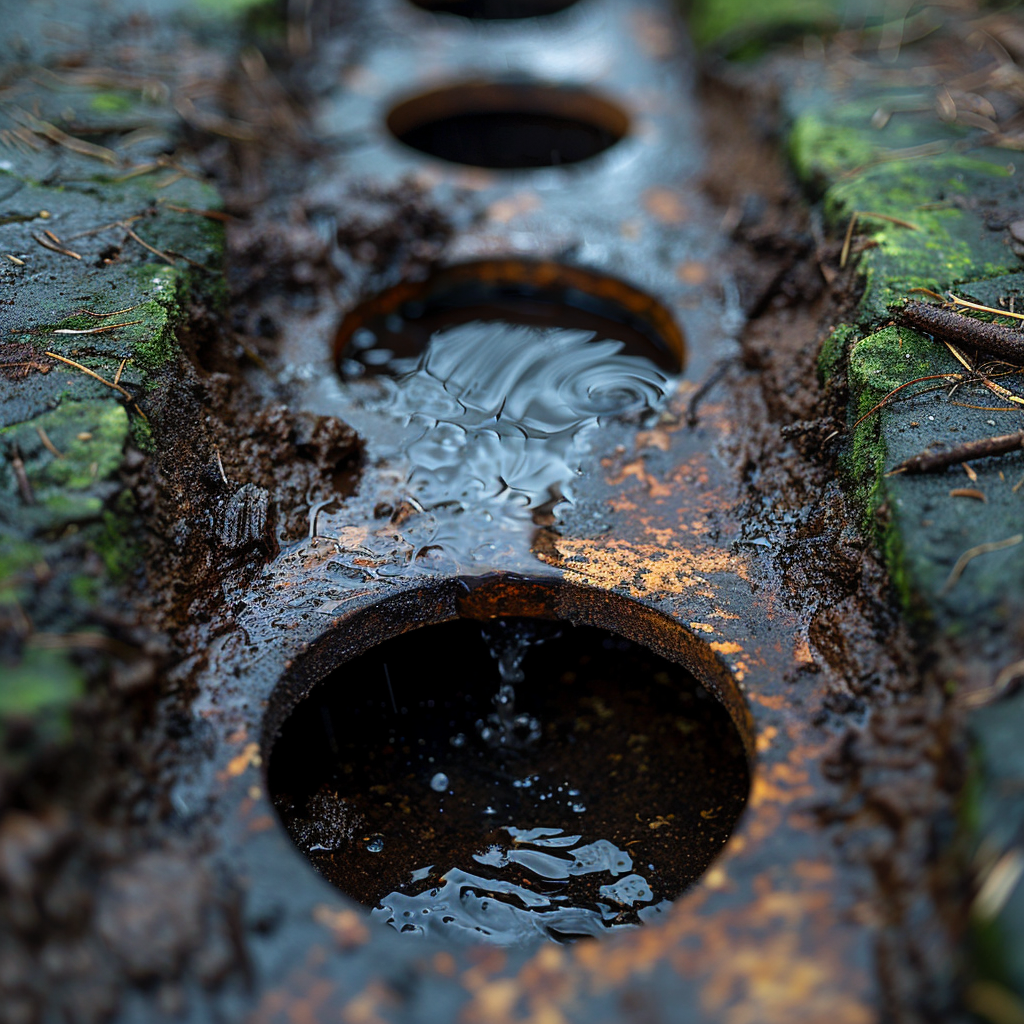
In a septic system, there’s a careful balance of biology and chemistry at work. Anaerobic bacteria are essential; they digest organic stuff without any oxygen. Simple chemicals help too, changing the pH to make a good home for these bacteria.
The Role of Bacteria
Bacteria in septic tanks are super important because they break down organic waste into less harmful substances. These tiny critters are busy keeping the system working well by dealing with the solid waste that piles up in the tank.
Dealing with Grease in Septic Tanks
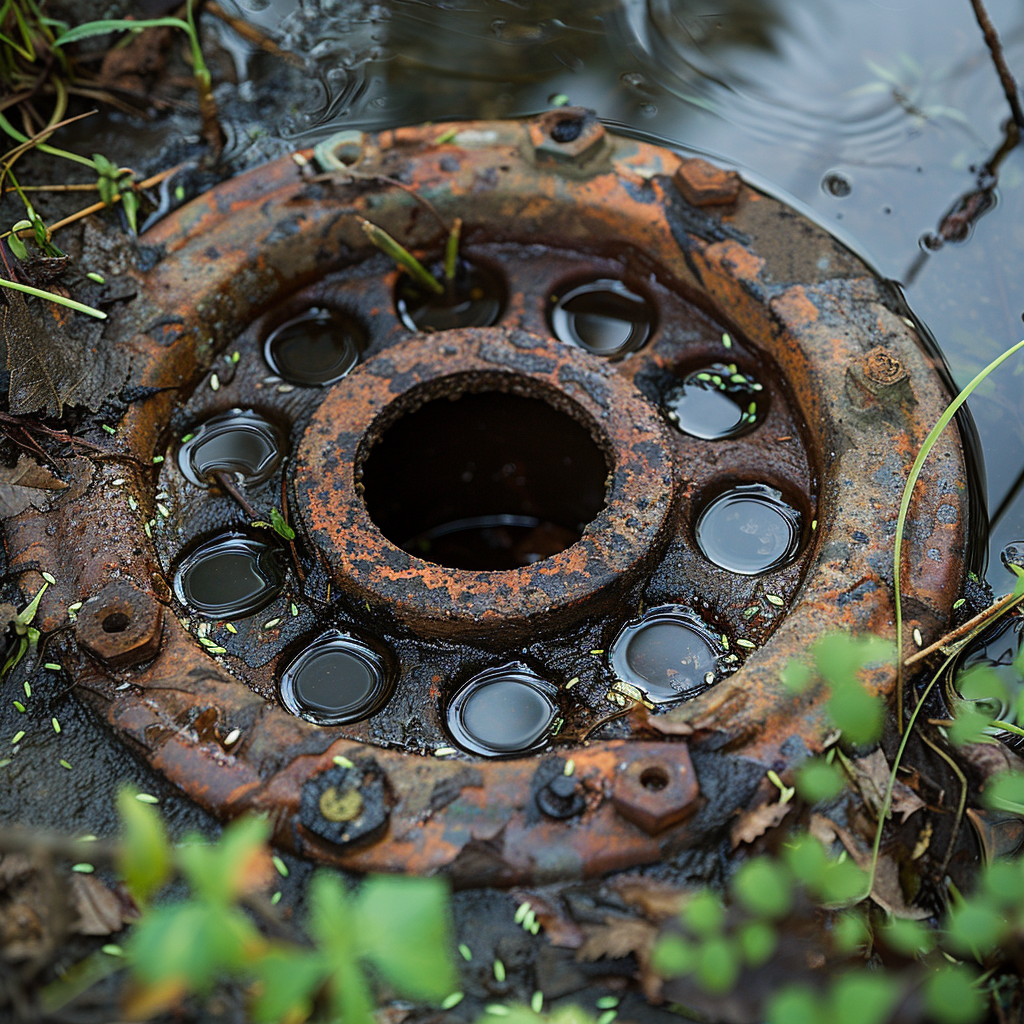
Grease is tough on septic systems. While some bacteria can handle fats and oils, too much will push the system too far. It’s smart to reduce grease getting into the system and maybe throw in some grease-busting additives if needed.
The Right Size and Build Matter
Getting the right size and design for your septic tank is crucial for grease control. The tank must match the amount of wastewater you produce so there’s enough time for solids to settle and bacteria to do their job. Not handling grease properly can clog up your system or wear it out, highlighting the need to keep up with maintenance and use your tank wisely.
To wrap things up, bacteria are key in breaking down waste in septic systems. Therefore, avoid overfilling these systems with grease. Make sure your tank’s size and setup meet your specific requirements to make sure it works well for years to come.
Getting to Know How Grease Builds Up in Septic Tanks
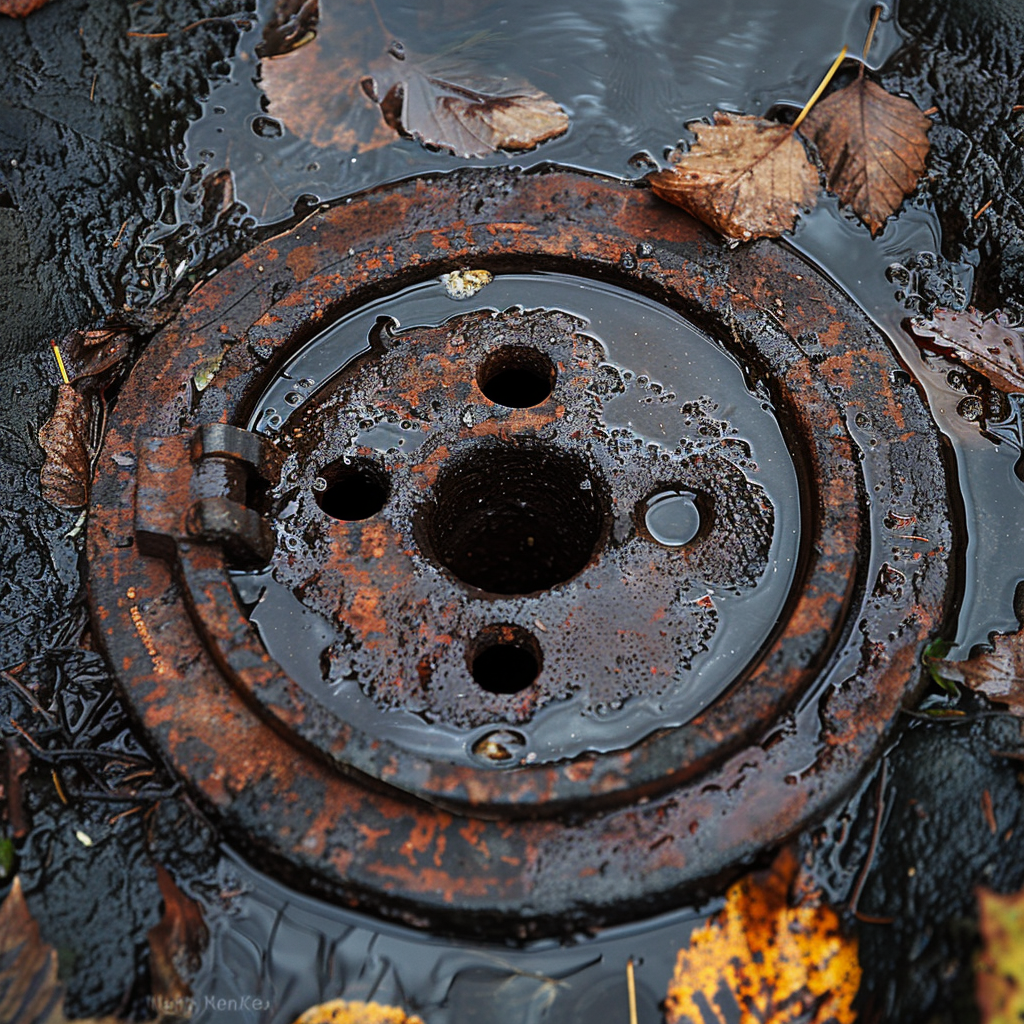
Septic tanks often get oils and grease poured into them through lines from kitchen sinks. As time goes by, these fatty materials rise to the surface and form a scum layer. If this greasy layer gets too thick or solidifies, it can make the tank work worse and even cause clogs.
How Grease is Like Other Organic Trash
Just like leftover food or what we flush, grease is organic waste. Bacteria work to break them all down when they end up in septics. But here’s the thing, grease takes its sweet time to decompose. It also floats because it’s less dense than water. So while other gunk sinks and becomes sludge, grease just hangs out on top.
Problems with Too Much Grease
Too much grease can plug your septic system and pipes, leading to gross sewage backups in homes and businesses. This mess is smelly and can harm your health.
Spoiling the Drain Field
If grease makes it to the leach field, it blocks the soil from filtering properly. That can pollute our groundwater, which is bad news for the environment.
Efficiency Drops and System Breaks Down
When your system gets jammed with grease, treating water gets harder. Ignore this issue, and you might end up with a busted system, meaning sky-high bills for fixes or getting a new one.
Remember to stop too much grease from clogging up your septic system. Keep it working smoothly by having it checked regularly and chucking grease in the bin instead of down the sink.
Keeping Grease Out of the Tank
To prevent grease build-up, limit how much goes into your drains. Installing a grease trap works wonders. Better yet, just throw oil and grease away! Clean off dishes before you wash ’em, and give greasy containers a wipe with some kitchen roll.
Tips for Overall Septic Care
Caring for your septic system often means doing the same things you’d do to keep grease at bay. Save on water use to avoid overpowering the system and choose gentle cleaners to keep the good bacteria doing their thing.
Regular Checks and Pump-Outs
Get someone to check and pump out your tank every so often—between 3 to 5 years is usually alright, but homes and habits can change that. Doing this stops major issues before they cost ya a tonne.
Kitchen Moves for a Happy Septic Tank
Your cooking routines can either help or hurt your tank. Chuck leftovers in the compost bin instead of flushing them. Also, go for nature-friendly kitchen soaps and cleaners that don’t mess with your tank’s bacteria.
Follow these steps and keep in mind how things affect your septic system; that way, you can prevent nasty grease troubles and other headaches.
Understanding Grease-Fighting Chemicals in Septic Systems
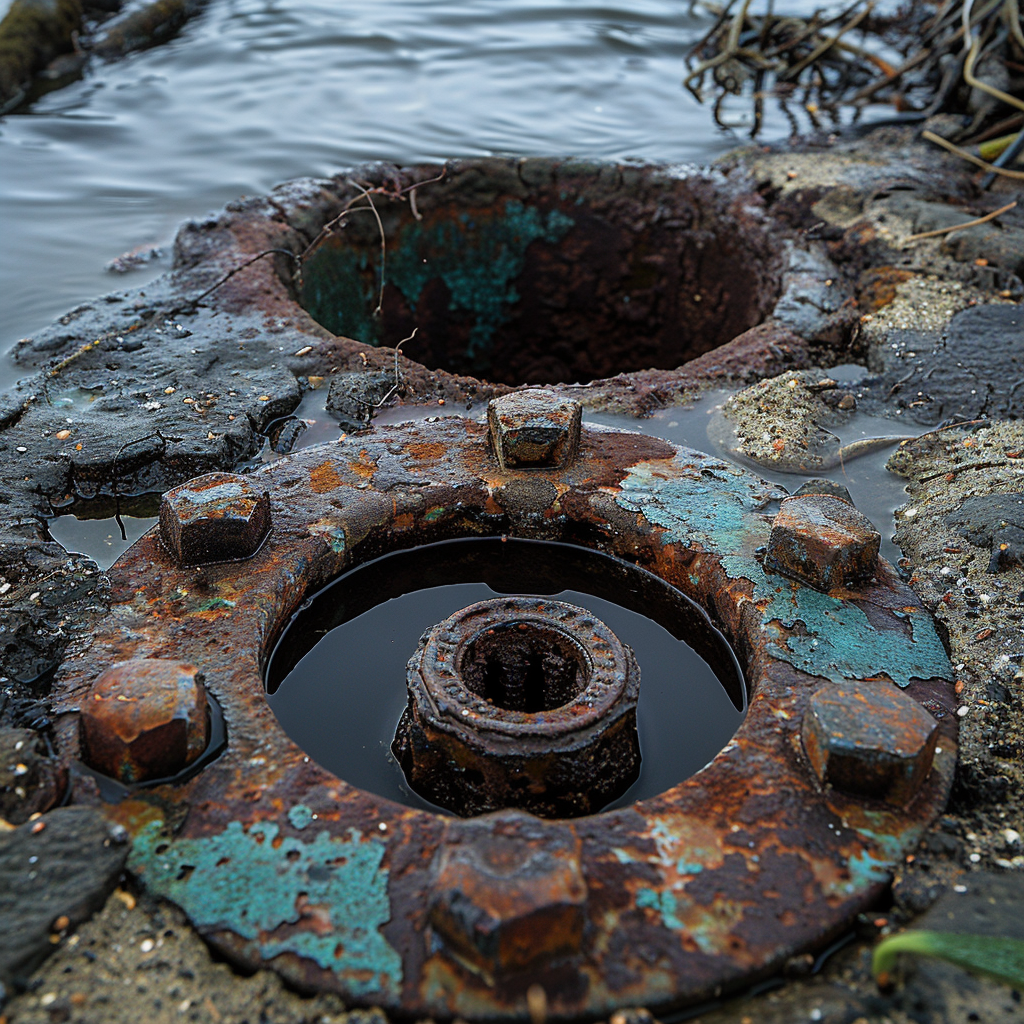
Adding chemicals is a key step in breaking down fats and oils in septic tanks. These additives break up the grease into smaller bits, helping the system handle them better. We’re talking about substances like alkaline mixtures that turn fats to soap and glycerin, acids that make fats into tiny droplets, or solvents that melt the grease away. They play a crucial part in keeping septic tanks working well and preventing clogs.
How Enzymes and Bacteria Help
Enzymes and bacteria are nature’s way of eating up grease. Enzymes speed up the fat-breaking process, while certain bacteria see grease as dinner, cleaning it out of the system. These natural helpers are nicer to Mother Nature than chemical ones and they help your septic tank do its thing.
The Ups and Downs of Using Chemicals in Your Tank
Sure, chemicals can tackle tough grease blockages fast and without much work from the homeowner. But, there’s a downside: they can eat away at your tank or hurt the environment with their toxic ways. It’s super important to think about these pros and cons, so you don’t mess up your tank or the land around you in the long run.
Comparing Treatment Options
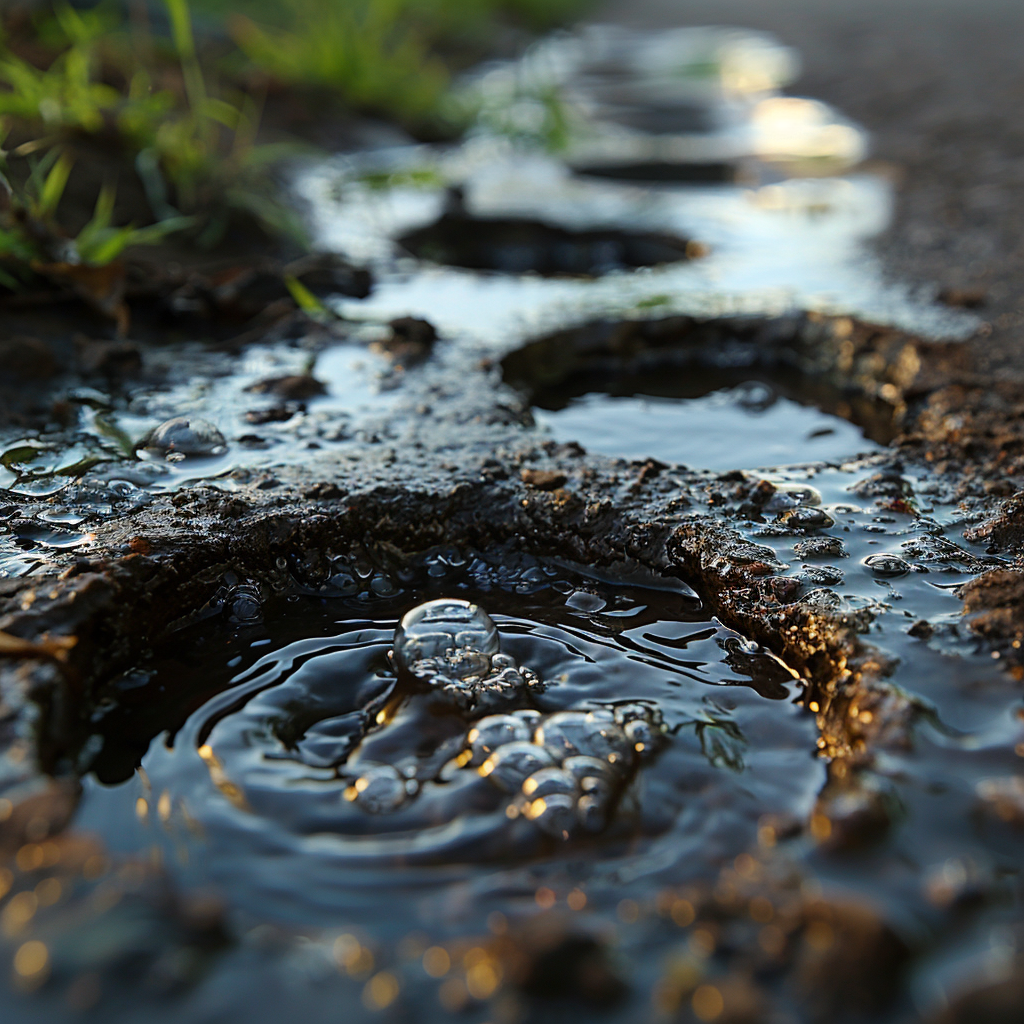
There are different ways to break down grease in septic tanks, including chemicals and natural processes. Each has its benefits and drawbacks:
- Speed: Chemicals can act fast to clear grease, but natural options can take more time while giving benefits that last longer.
- Eco-friendliness: Natural cleaners are usually milder on septic systems and the planet than strong chemicals.
- Lasting effects: Using natural treatments could help make a better balance of bacteria in the tank for the long haul.
- Price: Sometimes, chemicals might seem cheaper at first, but they could end up costing more if they damage the system or if you need to fix things later.
To wrap it up, each cleaning method has its pros and cons. When you have to pick one, think about how quicky you need to deal with the grease, the possible effects on your septic setup, what’s best for nature, and how much you’re willing to spend.
Description of Grease Traps and Interceptors
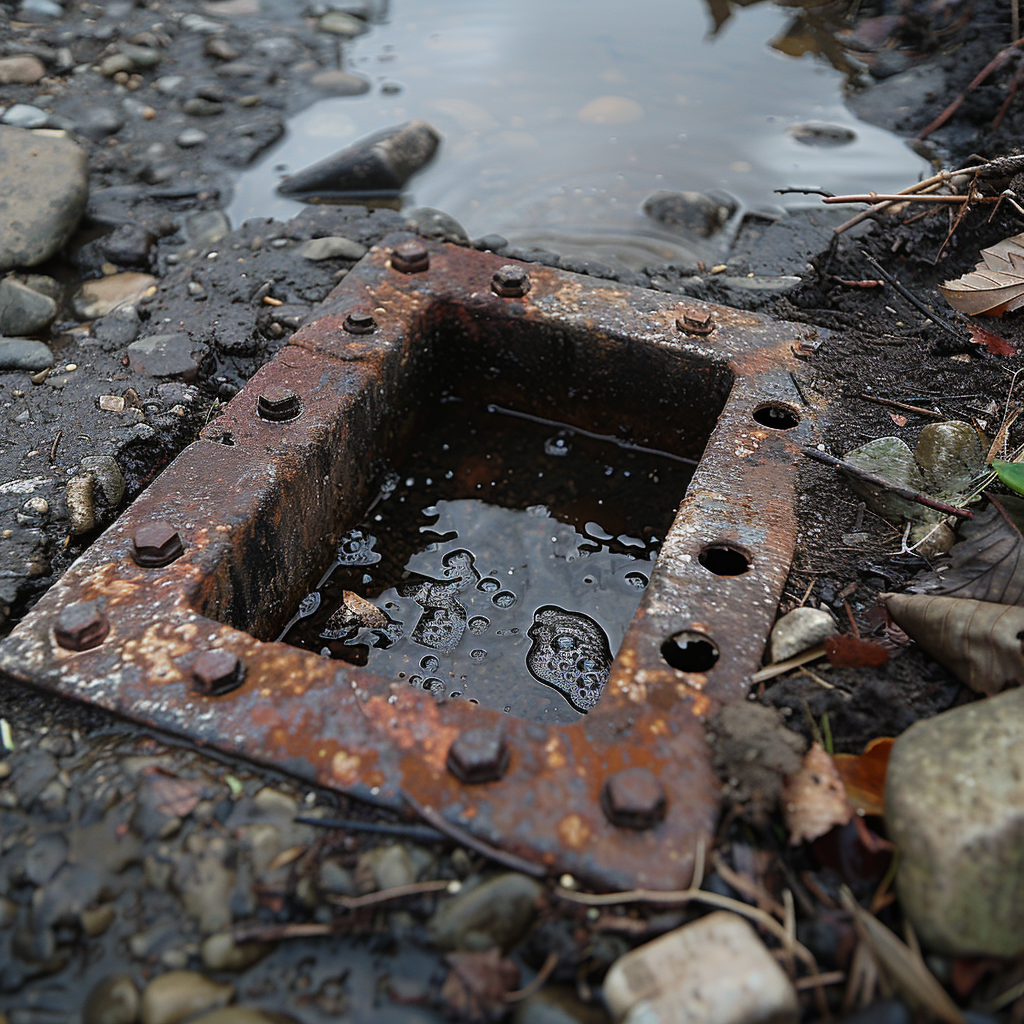
Grease traps and interceptors are key parts of wastewater management systems. They catch fats, oils, and grease, which we call FOG, from the water coming out of kitchens so it doesn’t go into septic tanks or sewer pipes. Usually, they’re made up of a box or a tank with partitions that make the water flow slower. This gives the grease time to cool down and become solid, It stops the FOG from ending up in the septic system, where it could cause blockages and other annoying problems.
Pump and Clean Your Septic Tank
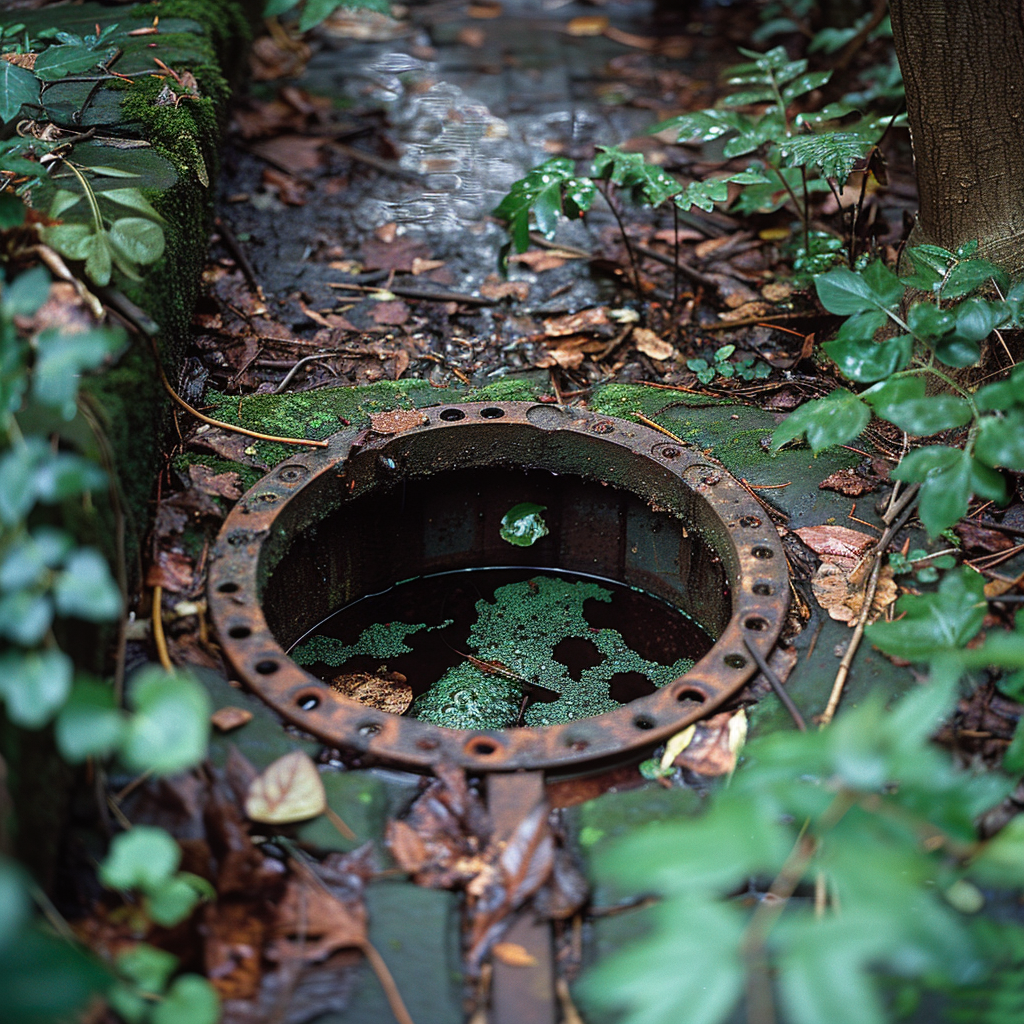
Keeping your septic tank in good shape means having it pumped and cleaned regularly. This job is done by experts who use a special pump truck to suck up the grease and other solids that gather on the bottom. Doing this often keeps your septic system working smoothly and prevents any clogs or spills. Also, when they come to clean, the service workers might check out how well your system’s doing and suggest fixes or changes if needed.
Gadgets and Tricks for Hand-Cleaning Grease
Sometimes, you’ve gotta roll up your sleeves and get rid of grease from a septic system by hand. Your gear might be as simple as buckets and spades or as fancy as strong water sprayers that bust through clogs. The pros suit up in protective clothes and wield special scrapers to wipe away the greasy gunk stuck on the inside of tanks, pipes, and all that stuff.
Safety and Environmental Considerations
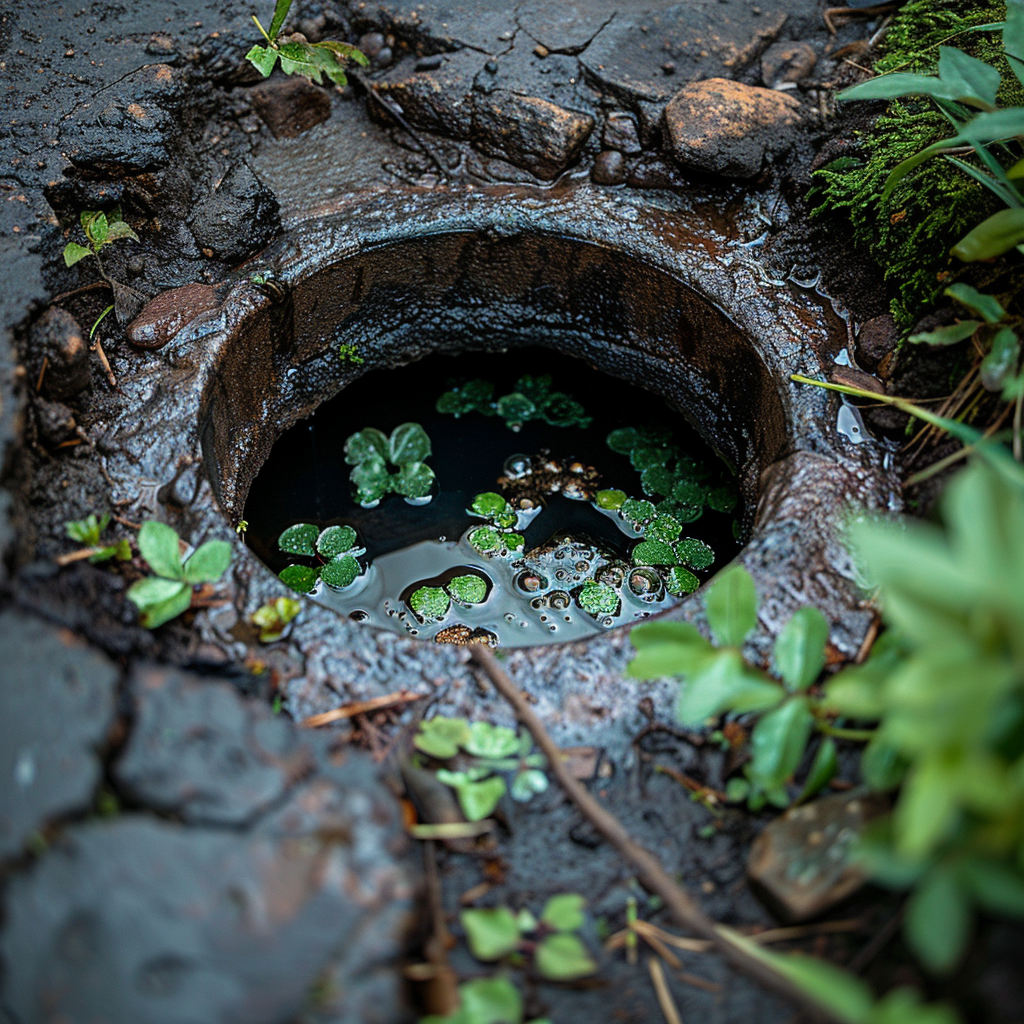
We need to be careful to follow safety rules when working with septic systems and dangerous stuff like grease. Workers have to protect their health by wearing the right gear and also make sure they don’t hurt nature. Getting rid of grease and dirty materials the right way, following what the local laws say, is key to stop pollution and look after our planet.
Keep in mind that septic systems can expose you to bad germs; so, it’s really important to keep things safe and clean. Homeowners should get pros to take care of their septic systems instead of trying to fix them themselves. Pros know how to be safe and follow the rules for nature. It’s also worth mentioning that even though you can scoop out grease by hand for a quick fix, keeping your septic system running well usually means getting regular check-ups, using it right, and sometimes adding special treatments that eat away at FOG slowly over time. This helps because it doesn’t upset the good bacteria that you need in your tank.
Simple Ways to Break Down Grease in Septic Tanks
If you’ve got a septic tank, grease buildup’s a real problem that needs smart handling. As time goes by, too much grease clogs up your system and messes with how well it works. The aim is to figure out solid tactics to melt away those grease blocks without screwing up the tank’s natural harmony.
Troubleshooting and Repair
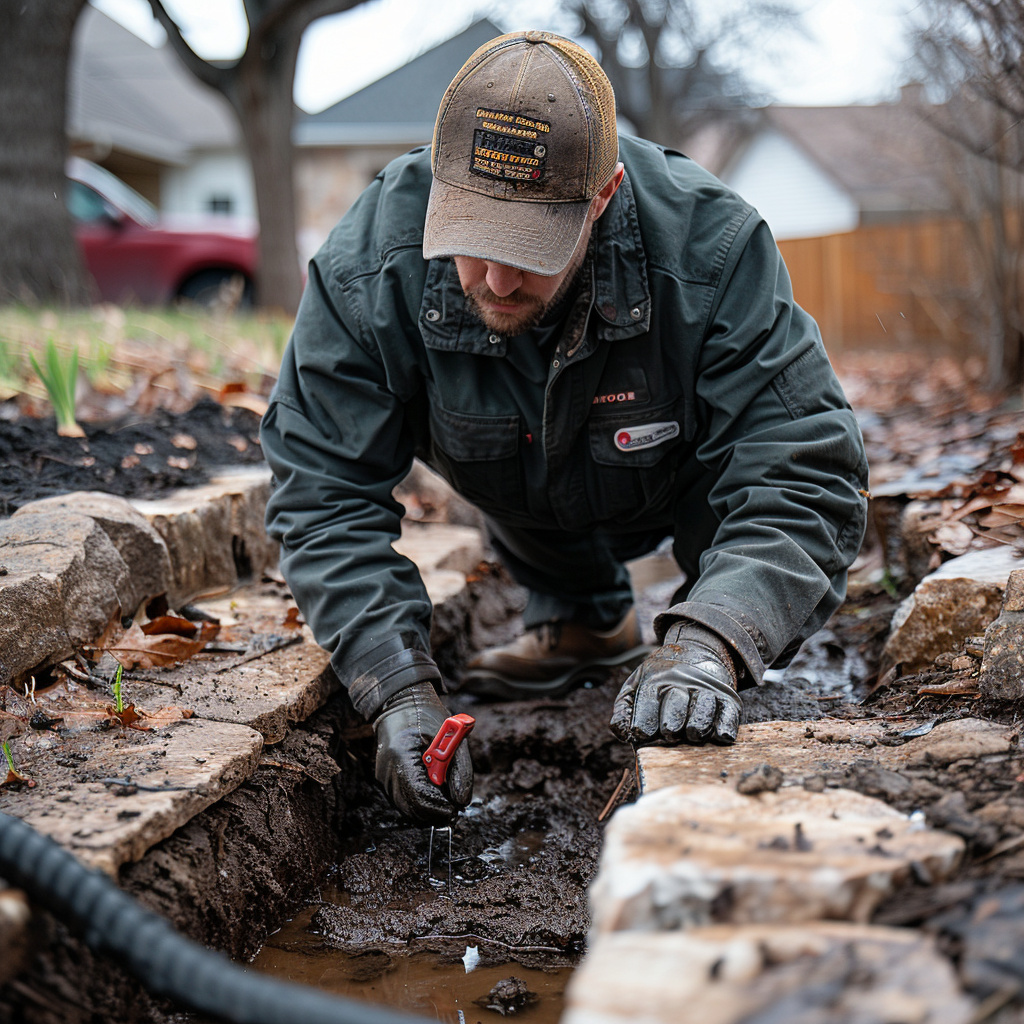
For effective troubleshooting, it’s important to notice signs that grease is messing with your septic system. Signs are things like slow drains, bad smells coming from the drain field, or sewage backing up. These often look like other issues with septic systems, which makes getting the right diagnosis important.
Figuring Out Septic System Issues
Diagnosing problems with a septic system, whether from grease or something else, typically involves the same kind of steps. You start by checking out places where trouble could start – the pipes, drains, and the tank itself. Finding out if there’s a clog and where it is, is what you’re aiming for.
How to Get Rid of Grease Clogs
If you find a clog caused by grease, here’s what to do:
- First up, stop putting any more grease down the drain.
- Then, go ahead and clear the inlet and outlet pipes of your septic tank to make sure they’re not blocked.
- If there’s need for it, pumping out your septic tank to get rid of hardened grease might be in order.
- Consider using bacterial additives that eat away fats and oils, which helps keep your system in good shape and stops future clogs.
- Staying on top of maintenance is key – get your septic tank checked and cleaned out when pros say you should.
When to Call in the Pros
If things don’t get better after you’ve tried fixing them, or if you’re not confident doing it yourself, it’s time to call a pro. They’ve got the tools and know-how for tough blockages and can give advice to stop grease from building up again.
Cleaning out grease in a septic tank might seem tough, but if you figure it out and follow the steps, you can get things running well again. But remember, if you need to, getting help from a professional is smart to make sure your system is working right.
How to Break Down Grease in Septic Tanks
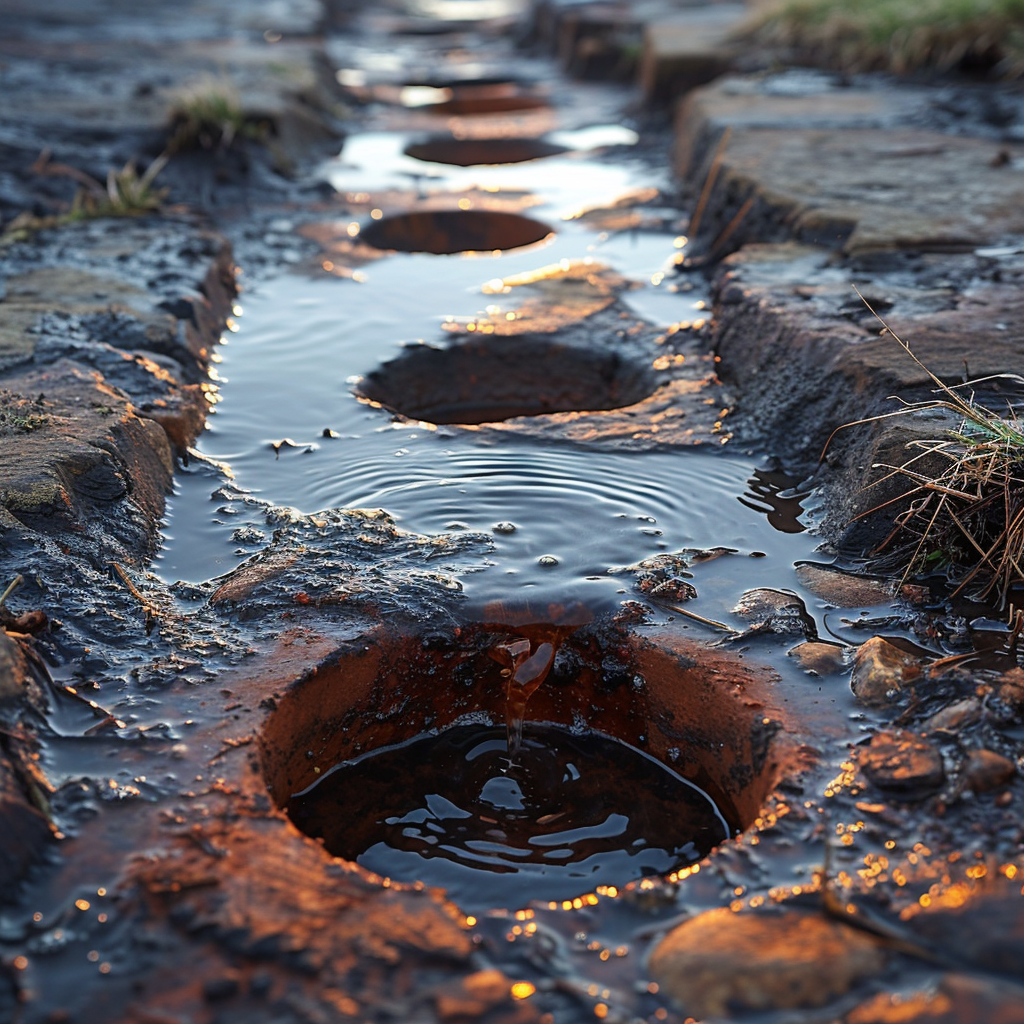
Many homes depend on septic systems to handle waste, but these systems can run into trouble when fats and grease build up. It’s crucial to solve these problems to keep the system working well. There are a number of ways to tackle grease, so let’s look at how well they work. We’ll use case studies and examples from the real world to highlight what works best and what we can learn from them.
Learning from Actual Cases
Looking closely at real-life situations where people tried different ways to deal with grease in their septic tanks can teach us a lot. For example, using additives that have bacteria which eat grease has worked out well. These bacteria turn the grease into things that the septic system can handle more easily.
Take a neighborhood that started using these additives as part of their regular septic tank care; they found that the layer of grease in their tanks got a lot thinner after half a year. This shows us that using living organisms can really help keep grease under control.
Comparing Ways to Dissolve Grease
When we look at all the ways you can get rid of grease, some are better than others. Methods like pumping may clear out grease for a while, but it’s not a lasting fix. Heating things up with hot water or steam can melt the grease away, which works but might not be good as a long-term solution.
Enzymes that break down grease into smaller parts can help the system decompose it naturally. How well these methods work depends on doing them right and matching them to your septic tank’s needs.
Frequently Asked Questions (FAQ)
Can RID-X aid in breaking down grease in a septic tank?
RID-X contains enzymes and bacteria that facilitate the degradation of waste, including fats and grease, enhancing septic system health.
Is BioOne effective against fat build-up in septic systems?
BioOne is formulated with bacteria designed to consume organic waste like fat, helping to maintain balance within the septic system.
What’s a homeowner’s best practice for minimizing grease issues in septic tanks?
Homeowners should avoid pouring grease down drains and use suitable additives to encourage the breakdown of accumulated fats.
How does grease accumulation threaten a residential septic system?
Grease buildup can lead to clogs and layers of scum, causing backups and reduced efficiency in household septic systems.
What signs indicate grease is becoming an issue in my septic tank?
Signs such as slow drainage, unpleasant odors, and water pooling near the leach field suggest grease-related septic tank issues.
Should cleaning habits change to protect aeration type systems from grease?
People with aeration systems should adjust their cleaning habits, reducing the amount of fats and oils that enter the system to prevent clogs.
Does temperature play a role in how grease affects my septic tank?
Yes, cooler temperatures can solidify grease, creating a thicker layer on top of wastewater that’s harder for microbes to break down.
What household products help break down grease in a septic tank without harm?
Products like RID-X and BioOne, which contain bacteria and enzymes, are safe for home use and assist in breaking down grease.
How often should I maintain my Grease Trap to ensure septic system efficiency?
Maintenance programs for grease traps vary but frequent cleaning ensures solids and grease do not enter the septic tank, preserving its efficiency.
Can certain water usage habits help mitigate fat build-up in my septic system?
Yes, moderating water use reduces the speed at which water flows through the system, allowing bacteria more time to break down fats.

I’m Tim Robberts, a seasoned wastewater treatment & septic system expert with over 40 years of experience in the field. My career began as a septic tank installer, and I quickly gained a reputation for my attention to detail and commitment to excellence. Over the years, I’ve honed my skills in designing, installing, and maintaining septic systems for residential and commercial properties.
